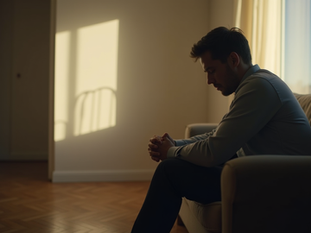There’s a unique kind of grief that doesn’t always get acknowledged: the grief of losing connection with people who are still alive. It may be a family member, a childhood friend, or someone who once felt like home. For whatever reason—be it distance, conflict, boundaries, or life changes—they are no longer part of our world.
This kind of grief is complicated. Unlike death, where there is finality, the absence here can feel unfinished, uncertain, and heavy. We grieve not only the past, including the memories we shared, but also the future we once imagined: the phone calls that won’t happen, the milestones that won’t be celebrated together, the comfort that is no longer there.
Sometimes these separations come from painful choices. We might have had to set boundaries for our own safety or peace. Other times, the drift happens quietly, without clear reason, leaving only questions and longing. Either way, the heart feels the ache of absence.
It’s important to remember that this grief is real. Just because the people are alive doesn’t mean the loss hurts any less. We are wired for connection, and when those bonds are severed, something deep within us mourns.
Honoring this grief doesn’t always mean rekindling the relationship. It can mean lighting a candle, writing unsent letters, or holding the memory of love alongside the reality of separation. It can mean recognizing that even in absence, the relationship shaped who we are.
We can also find solace in chosen family, in friendships that nurture us, and in the quiet reminder that grieving is not just about what we’ve lost. It is also about what we continue to carry in our hearts.
Grief for the living asks us to hold paradox: to love and let go, to remember and move forward, to mourn and still open ourselves to new forms of connection. It is not easy, but it is deeply human.
Prompts to Explore:
Who comes to mind when I think of family members or friends I no longer have connection with?(Write names or descriptions without judgment.)
What did I love or appreciate about these relationships, even if they were complicated?
What hurts the most about the disconnection? What am I grieving?
What boundaries or changes led to this separation? How did they protect me or honor my needs?
If I could speak freely to these people, what would I want them to know about my love, my pain, or my hope?
How can I honor the parts of me that are missing them, while also nurturing the life and connections I have now?
What ritual or practice might help me release, honor, or carry this grief in a gentler way?
Closing: Write a few sentences of affirmation for yourself, such as:
“My grief is valid.”
“I can love from afar while protecting my heart.”
“I am learning to honor both my past and my present.”






